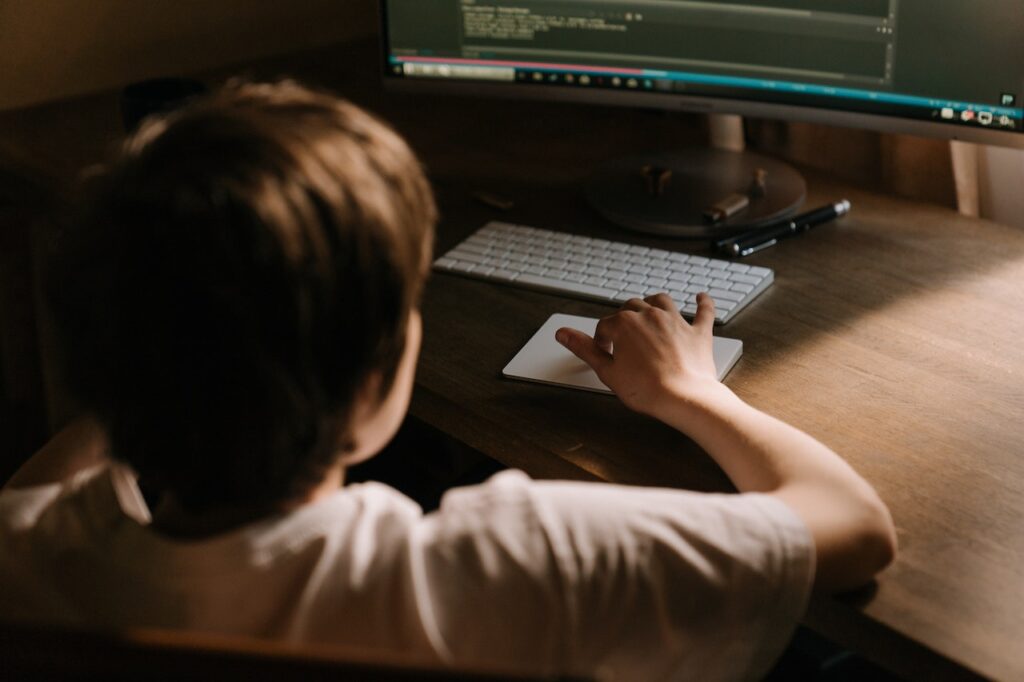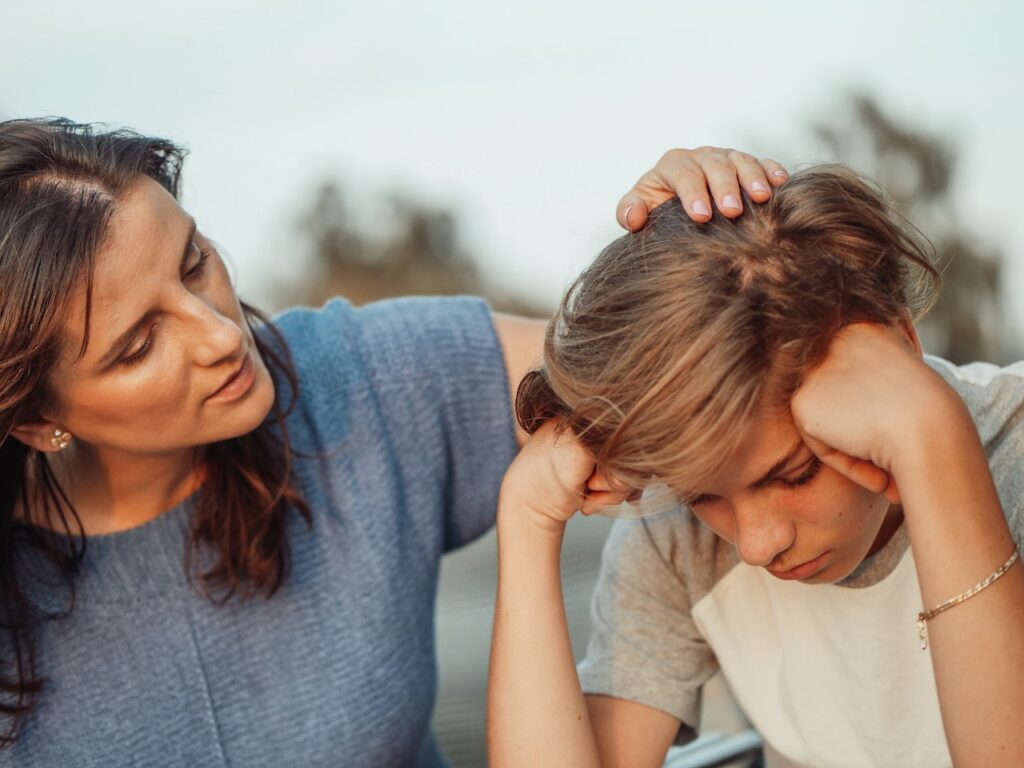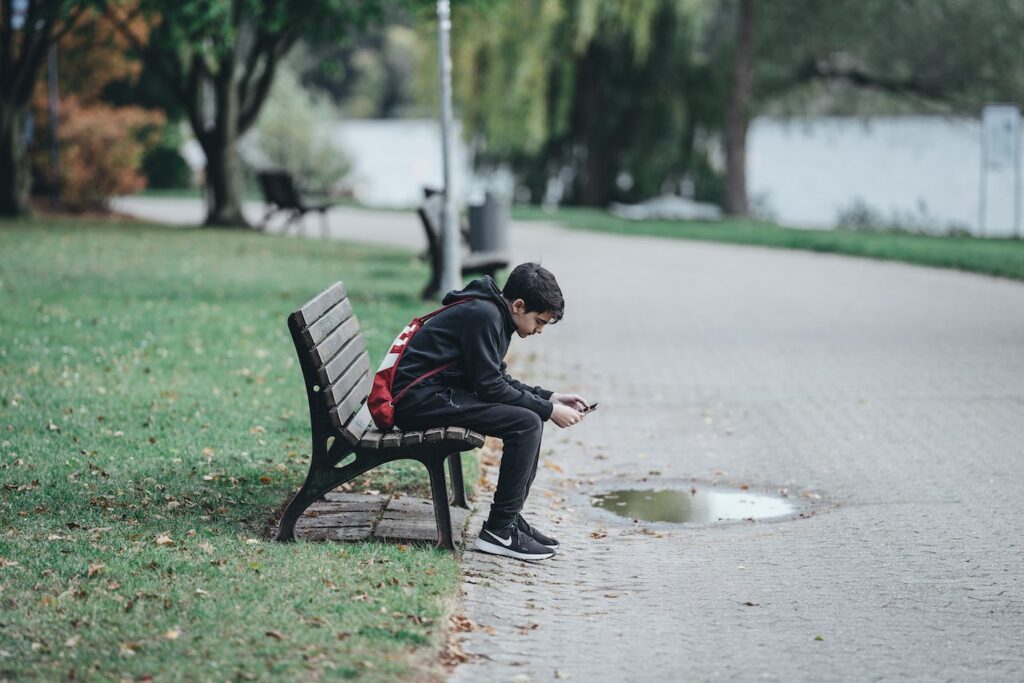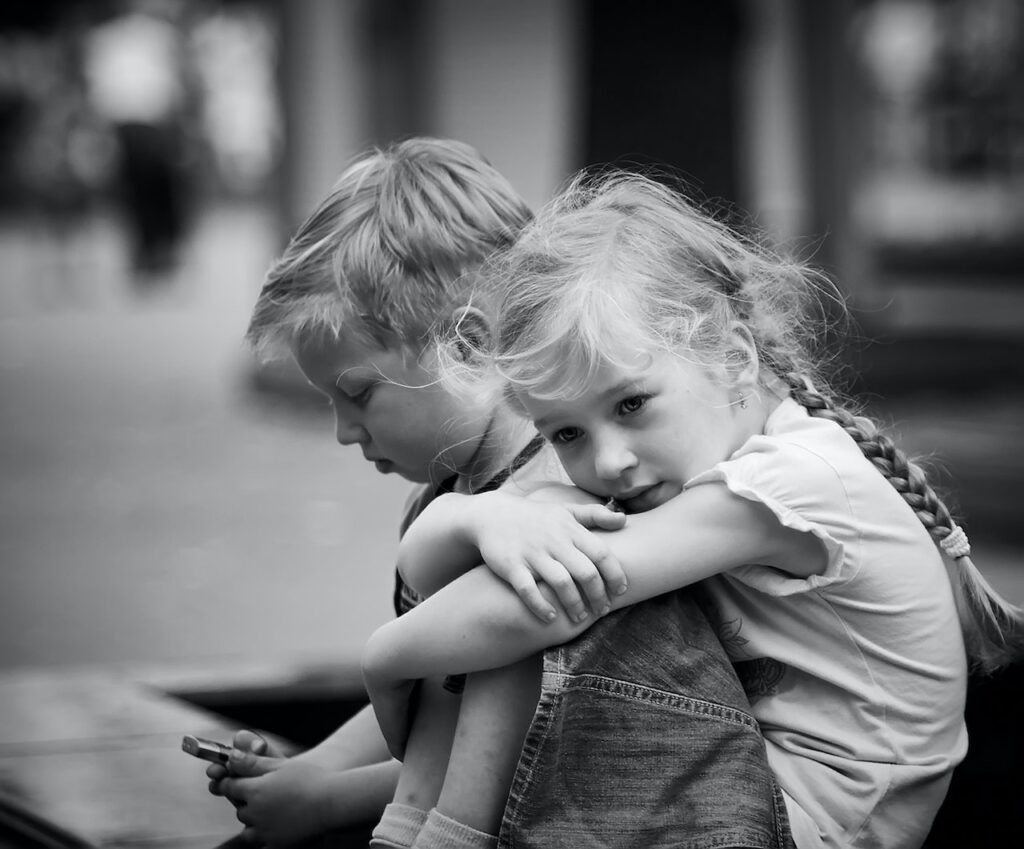The Internet is a place where you can meet both good and bad people at the same time. Kids’ online exposure can be risky, especially if they become targets of dangerous individuals with mean purposes.
Online harassment happens when a person uses tech devices to harm, humiliate, bully, threaten, and harass other users online.
Nowadays, every kid can become a victim of online harassment. In the following part of the article, we’ll look at the impact of online harassment on children, and find ways to protect your little ones.
Types of Children’s Online Harassment

There are different types of online harassment but they all have the same mean purpose: to hurt our children’s feelings. So, in the next paragraphs, we’ll quickly go over the different types of online harassment.
· Cyberbullying
Cyberbullying happens when one user sends harmful, aggressive, and humiliating messages to another user.
Cyberbullying mostly affects children. Statistics show that about 27% of teens have been cyberbullied at least once in their life.
· Sexual Harassment
Sexual harassment happens when a user shares explicit images, videos, messages, and posts. Exposure to such content can negatively affect children’s mental growth.
So, it’s really important to encourage your children to avoid any user that shares inappropriate content.
Studies show that about 54% of children under the age of 13 have been exposed to explicit and sexual content online.
· Trolling and Doxxing
Trolling means posting offensive content to provoke and upset social media users. On the other hand, doxxing happens when a user publicly leaks another person’s private information.
· Hate Speech
Hate speech means spreading hateful comments on social media based on race, ethnicity, religion, disabilities, etc.
The problem with hate speech is that it’s often overlooked, and its prevalence on social media is enormous.
How Online Harassment Impacts Children

Children, victims of online harassment, can develop several different issues that affect their well-being. In the following paragraphs, we’ll closely look at how online harassment impacts children.
· Psychological Effects
Children exposed to online harassment mostly develop psychological problems. This can include sadness, increased stress, anxiety, fear, panic attacks, low self-esteem, etc.
· Behavioral Effects
Kids can change their behavior and start demonstrating aggressive and violent attitudes, isolate themselves, feel humiliated and ashamed, and even start using drugs or alcohol.
· Effects on Academic Skills
Kids can lose their interest in school and distance themselves from academic activities because of the constant lack of concentration, and low ability to memorize and learn.
· Physical Effects
Children can also manifest negative physical effects caused by online harassment, such as:
- Sleeping disorders like insomnia;
- Uncontrolled eating and obesity;
- Physical pain caused by stress and anxiety;
Risk Factors for Children

We, parents, need to know that online harassment can happen to every kid. But there are several risk factors related to the possibility of kids suffering from online harassment. These risk factors include:
- Age;
- Gender;
- Sexual orientation;
- Race and ethnicity;
As mentioned above, online harassment can happen to every kid, but factors like gender, sexual orientation, race, and ethnicity can (sadly) increase the chance of a child getting harassed online.
The Role of Parents and Caregivers

We, parents and caregivers, need to be aware and take care of our little ones’ online safety. As we all know, kids’ mental health can easily be damaged by when they’re exposed to online harassment.
So, you can start by monitoring your child’s online presence with parental control apps. Moreover, you need to have open and effective communication with your children and tell them how to recognize and report users that harass them online.
· Creating a Safe Home Environment
Teaching our kids about online safety and creating a safe home environment is a must thing to do. This includes:
- Creating strong passwords;
- Managing privacy settings;
- Ignoring strangers;
- Blocking and reporting inappropriate users;
The Role of Schools and Educators
Kids spend most of the time in their day at school. Therefore educators need to be involved in informing our kids about the risks and ways to prevent online harassment.
Educators can do this by developing anti-harassment policies which teach kids that online harassment is not allowed behavior and has legal consequences.
Moreover, they can educate kids about online safety and the importance of keeping their private information safe.
Last but not least, educators should also offer resources and support to children battling online harassment.
Legal Measures and Enforcement

Today’s modern world brought a lot of new ways to commit acts of crime. The police can help you and your child when it comes to online harassment only if:
- The harasser has posted your child’s private photos without consent;
- Your child has received specific threats;
- The harasser starts stalking your child;
But parents still need to battle and make more noise regarding the risks of online harassment and address the importance of punishing those who do wrong.
Intervention and Prevention
Intervention and prevention is the first step in protecting children from online harassment. But what happens if kids become victims of online harassment? It’s tough for parents to face this problem, but you must be your child’s biggest support.
· Counseling and therapy
If your child suffers serious mental trauma due to online harassment, you can reach out to professionals that can help your child overcome that period.
· Support groups
Knowing that you are not the only one battling online harassment makes you feel comfortable to open yourself up and talk about the problem, how it happened, and how to fight it.
· Educational campaigns
Schools need to be active in organizing educational campaigns to raise awareness about online harassment and how to stay safe online.
Conclusion
Online harassment has a huge negative impact on our kids’ life. Be active parents and teach your little ones the importance of online safety.
Try motivating your kids’ school management to organize an educational campaign, and always be supportive of positive changes. Do what’s best for your children, that’s what parents do after all.
What should I do if my child is being harassed online?
Firstly stay calm and collected, and then block and report the harasser. After that, talk with your child and help him/her overcome the problem.
Can online harassment lead to long-term mental health problems?
Yes, it can. If your child experiences long-term mental health problems caused by online harassment, you should consult a therapist.
How can I teach my child to avoid online harassment?
You can teach children to avoid strangers and report inappropriate users from a young age by playing games and acting out different online scenarios.
What is the role of bystanders in preventing online harassment?
Just like in real life, bystanders can help out the person that’s being harassed and also report the harasser.
ALSO READ: How to Lock YouTube Screen for Child iPhone







